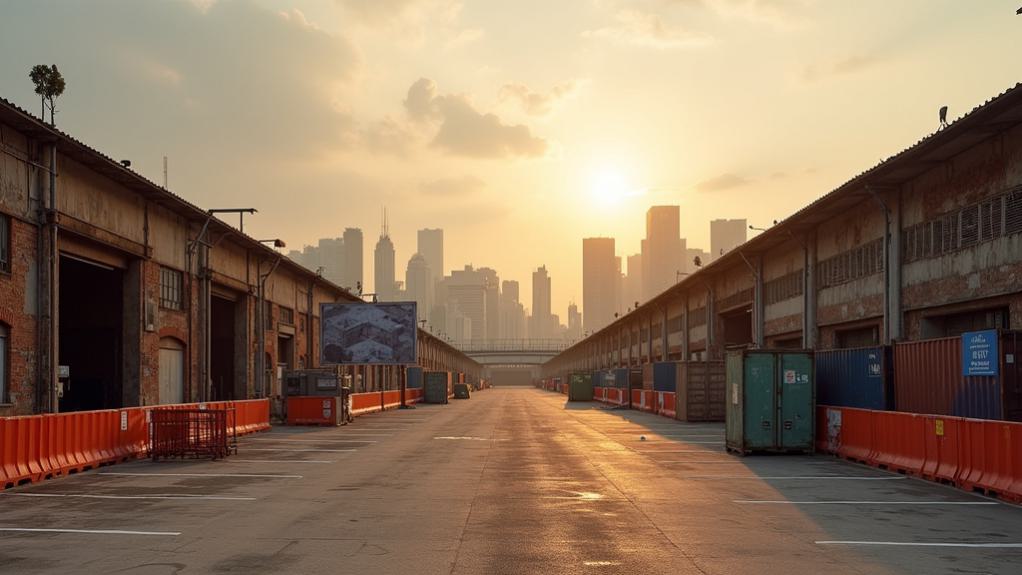As Singapore continues its strategic urban renewal initiatives, the Depot Lane Industrial Hub has been officially scheduled for closure by the end of Q4 2025, making way for a substantial housing transformation project. The announcement, communicated through business channels and social media by affected tenants, aligns with the nation’s ongoing efforts to optimize industrial land for residential development in response to increasing housing demands in mature estates and urban peripheries.
Singapore’s urban renewal strategy advances as Depot Lane Industrial Hub faces 2025 closure, transforming industrial land into vital residential space.
Several longstanding businesses have already confirmed their departure dates, with multiple tenants announcing June 2025 exits as part of the phased closure process. Notable establishments such as Botak Jones have publicized their migration plans, signaling the widespread impact on the industrial community that has served both workers and nearby residents with affordable services and dining options. The well-known western food outlet Botak Jones at 118 Depot Lane will cease operations after Jun. 22, 2025 due to the redevelopment.
The redevelopment forms part of Singapore’s expansive strategy to address urban land scarcity while balancing economic priorities with social needs. Investors are closely monitoring this transformation as Singapore’s land scarcity continues to drive upward pressure on property values across the island. Government and planning authorities are overseeing this transformation in accordance with national urban development frameworks, which emphasize sustainable high-density housing solutions across the land-constrained city-state.
Following the industrial hub’s closure, the site will undergo extensive redevelopment to introduce new public housing units, with the possibility of private residential components. The project is expected to incorporate enhanced amenities, green spaces, and improved transport connectivity, potentially serving as a model for similar industrial-to-residential conversions throughout Singapore. This development follows similar strategic approaches seen in areas like the Jurong Lake District, where 1,800 to 2,600 residential units are planned on the former Tang Dynasty City land.
This transformation occurs against the backdrop of post-pandemic economic recovery and reflects broader macroeconomic factors including inflation pressures and changing urban spatial requirements. The redevelopment represents a significant milestone in Singapore’s continuous urban renewal cycle, characterized by the progressive conversion of industrial zones into residential or mixed-use developments in established neighborhoods.
The new housing developments are anticipated to launch shortly after the industrial hub ceases operations, contributing to increased housing supply that may help alleviate demand pressures in surrounding districts while supporting Singapore’s long-term urban planning vision of creating sustainable, integrated living environments.





